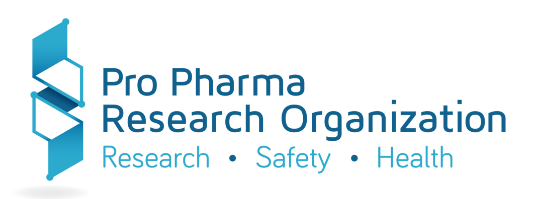
A Comprehensive Guide: Unveiling the Role of Medical Affairs in Modern Healthcare (part V)
Medical Science Liaison (MSL) Programs: Bridging Science and Practice
In the rapidly evolving landscape of the pharmaceutical industry, Medical Science Liaisons (MSLs) play a pivotal role in facilitating communication between pharmaceutical companies, healthcare professionals (HCPs), and key opinion leaders (KOLs). MSL programs are meticulously designed to fulfill specific purposes and objectives, requiring individuals with a unique set of skills and qualifications. Let's delve deeper into the essence of MSL programs, their objectives, and the requisite skills and qualifications for aspiring MSL professionals.
Purpose and Objectives
At its core, the primary purpose of MSL programs is to establish and maintain scientific credibility and relationships with healthcare providers, academic institutions, and other stakeholders. The objectives of MSL programs can be delineated as follows:
- Scientific Exchange: MSLs serve as scientific experts, engaging in meaningful dialogue with healthcare professionals to provide accurate, balanced, and up-to-date scientific information about pharmaceutical products, disease states, and therapeutic areas. They facilitate scientific discussions, address queries, and offer insights based on clinical evidence and emerging research.
- Education and Training: MSL programs aim to educate healthcare professionals about the safe and effective use of pharmaceutical products. MSLs organize and conduct educational activities such as presentations, workshops, and seminars to enhance healthcare providers' understanding of disease management strategies, treatment modalities, and clinical data interpretation.
- Clinical Research Support: MSLs collaborate closely with investigators and research institutions to support clinical research initiatives. They provide assistance in study design, protocol development, patient recruitment, and data dissemination, fostering collaborative partnerships between pharmaceutical companies and the scientific community.
- Feedback and Insights: MSLs gather valuable feedback from healthcare professionals, KOLs, and other stakeholders regarding unmet medical needs, treatment preferences, and emerging trends in clinical practice. They serve as conduits for conveying these insights to internal stakeholders, informing strategic decision-making and product development efforts.
Skills and Qualifications Required
The role of an MSL demands a diverse skill set and a robust foundation in biomedical sciences, coupled with exceptional communication and interpersonal abilities. The requisite skills and qualifications for aspiring MSL professionals encompass:
- Advanced Scientific Knowledge: MSLs must possess a deep understanding of pharmacology, physiology, and pathology relevant to their therapeutic area(s) of focus. A strong background in biomedical sciences, often supplemented by advanced degrees such as PharmD, MD, or PhD, is essential to interpret and communicate complex scientific information effectively.
- Communication Skills: MSLs must excel in both verbal and written communication to convey scientific concepts clearly and persuasively. They must be adept at tailoring their message to diverse audiences, including healthcare professionals, researchers, and internal stakeholders. Strong presentation skills and the ability to engage in scientific discussions are paramount.
- Interpersonal Skills: Building and nurturing relationships is at the heart of the MSL role. MSLs should demonstrate empathy, integrity, and professionalism in their interactions with healthcare professionals and key opinion leaders. They must be skilled at establishing rapport, actively listening to stakeholders' concerns, and fostering collaborative partnerships based on mutual respect and trust.
- Analytical and Strategic Thinking: MSLs need to analyze scientific data critically, identify key insights, and translate them into actionable strategies. They should possess strong problem-solving abilities and strategic acumen to address complex challenges in the healthcare landscape effectively.
- Adaptability and Learning Agility: Given the dynamic nature of the pharmaceutical industry and evolving scientific advancements, MSLs must exhibit adaptability and a willingness to continuously update their knowledge base. They should embrace lifelong learning and stay abreast of the latest research findings, regulatory guidelines, and therapeutic innovations.
- Team Collaboration: MSLs often work collaboratively with cross-functional teams, including medical affairs, marketing, regulatory affairs, and clinical development. The ability to collaborate effectively within multidisciplinary teams, leverage collective expertise, and align strategies to achieve common goals is essential for success in the MSL role.
In conclusion, Medical Science Liaison programs play a pivotal role in bridging the gap between medical science and clinical practice within the pharmaceutical industry. By fostering scientific exchange, supporting clinical research, and building collaborative relationships with healthcare professionals, MSLs contribute to advancing patient care and driving innovation in healthcare. Aspiring MSL professionals must possess a diverse skill set, including advanced scientific knowledge, exceptional communication skills, interpersonal acumen, and a strategic mindset, to excel in this dynamic and rewarding role.
At Pro Pharma Research Organization we have different Medical Science Liaison services, among them are content services and digital resources, e-learning modules and training programs, real-world data integration, among others. Contact us to access more information and discover how we can help your company.
Publication date: April 2024
Author: Pro Pharma Research Organization Team










